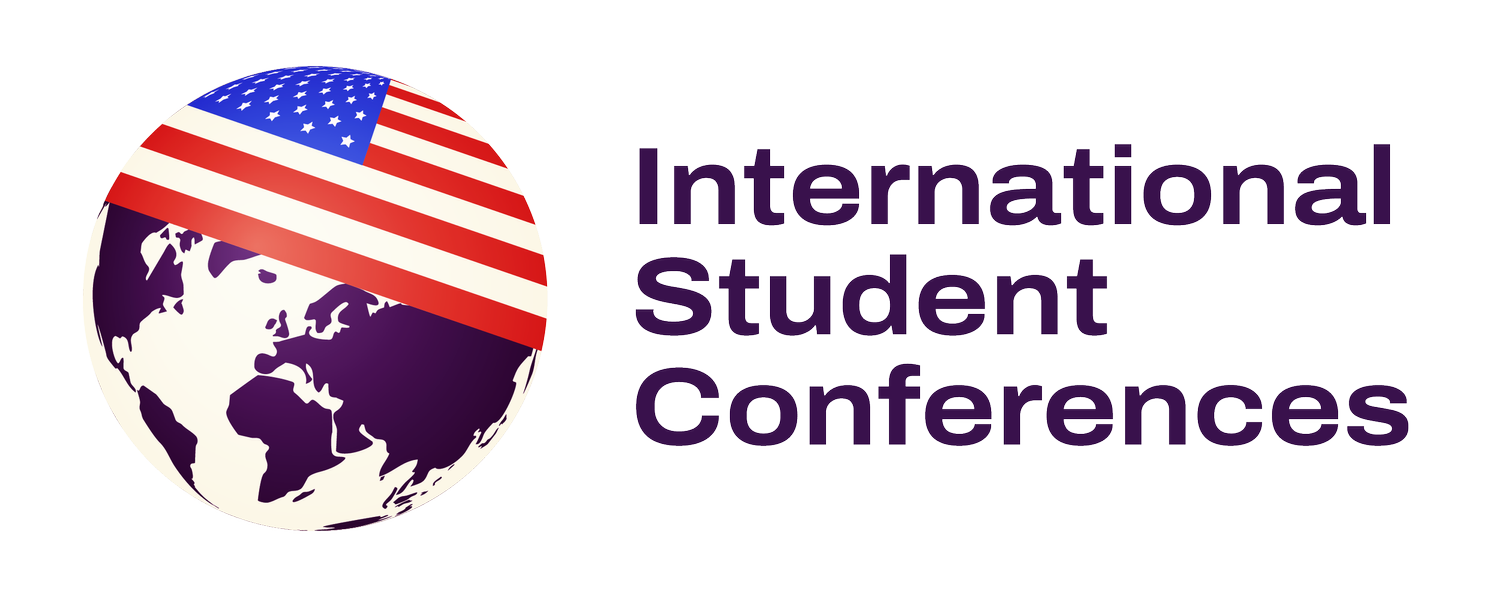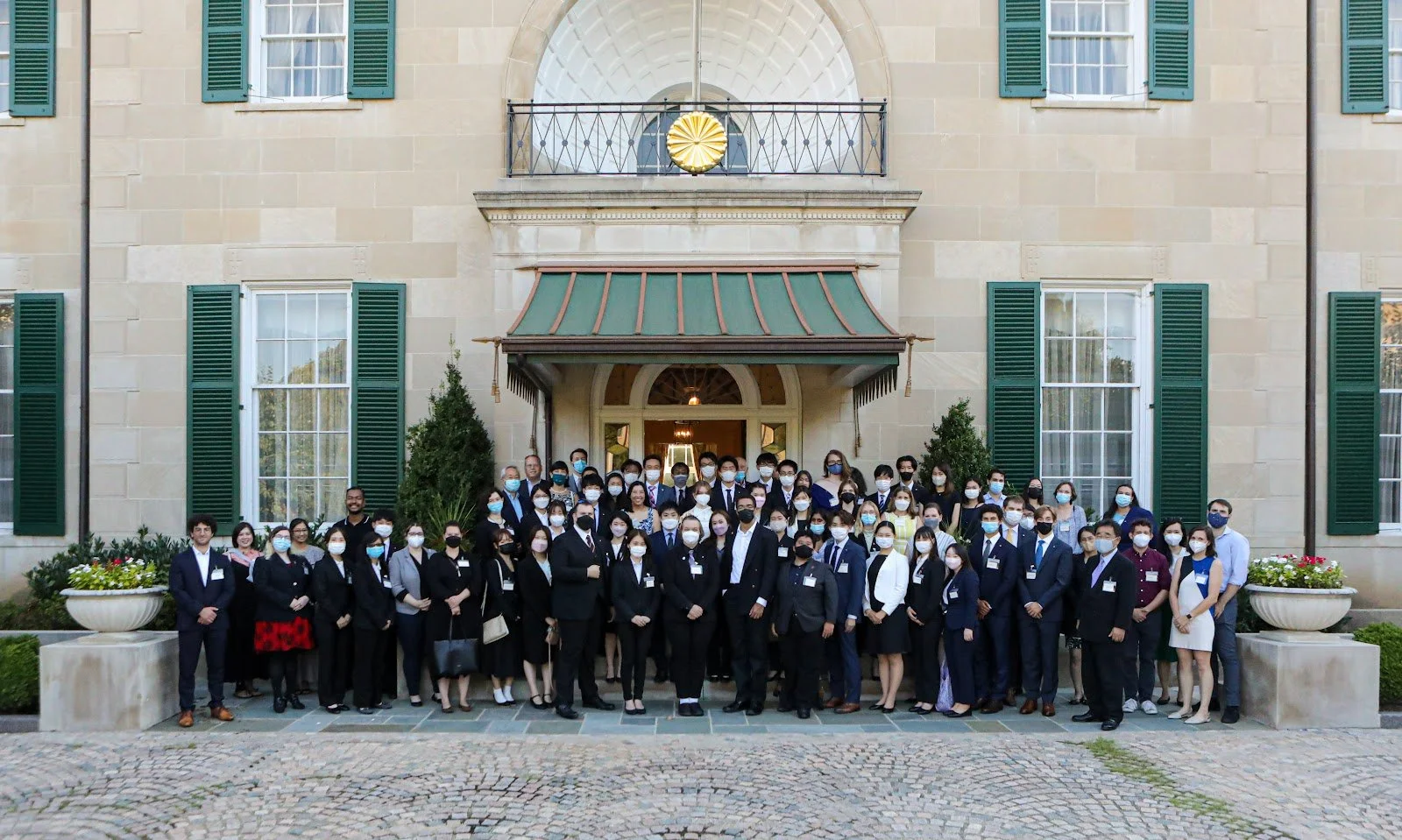JASC 74: When 61 Students Chose to Fortify Connections Across the Pacific
August 4-26, 2022. New York, Washington D.C., Annapolis.
After two years of pandemic disruption, the 74th Japan-America Student Conference returned to in-person programming with a theme that felt more urgent than ever: "Fortify: Constructive Exchange to Undertake Challenges."
Sixty-one delegates from Japan and the United States spent three weeks wrestling with questions that don't have easy answers.
New York: Confronting Difference
The conference opened in New York, where diversity isn't abstract — it's the daily reality of millions navigating one of the world's most complex urban environments.
Delegates immediately dove into challenging territory. How do Japan and America handle diversity differently? What does it mean when one society emphasizes homogeneity while another celebrates multiculturalism — at least in theory?
The Social Justice & Cultural Identity roundtable examined these questions through multiple lenses. They researched Zainichi Koreans in Japan and Asian Americans in the United States — two minorities with entirely different histories but shared experiences of navigating majority cultures. They explored material culture's impact on identity, examining how infrastructure itself can embed social injustices, from snow-plowing patterns that disadvantage care workers to public spaces designed without considering diverse bodies.
The Taboo roundtable pushed into uncomfortable territory: sex work in Japan, the stark difference between how society treats van life versus homelessness, and the unspoken hierarchies that determine whose lifestyle choices get celebrated versus condemned.
Washington D.C.: Where Decisions Get Made
The nation's capital shifted focus to power and policy. How do decisions actually get made? Who gets heard? How can students influence systems that seem designed to exclude them?
The Global Governance roundtable tackled Indigenous diplomacy and the U.S.-Japan Security Treaty — examining how sovereignty works when some populations remain colonized within democratic nations, and whether a treaty from 1960 still serves both countries' interests.
The Education & Media roundtable confronted the 21st-century information crisis. In an era of coordinated misinformation campaigns and algorithmic echo chambers, what can media literacy actually accomplish? How do citizens navigate information chaos when cognitive biases are weaponized?
The Business roundtable explored immigration policy in both countries — examining Japan's demographic crisis and America's ongoing border debates, asking whether either nation's approach actually serves economic or humanitarian interests.
Annapolis: Sources of Dynamism
The Naval Academy provided unexpected context for discussing American institutions. Cadets and delegates explored issues ranging from drug legislation to racism to the Ainu in Japan — discovering that military education doesn't preclude questioning systems of power.
The Future Predictions roundtable examined urbanization patterns in Tokyo and Los Angeles, asking whether stagnating population growth represents a crisis or an opportunity. They researched technological futures, exploring how Japanese hardware innovation and American software dominance might create collaborative possibilities.
The Technology & Heritage roundtable investigated why Japan remains largely cash-based while China and South Korea embrace digital payments, and how artificial intelligence deployment differs based on cultural attitudes toward automation and robotics.
The Research
Throughout three cities, seven roundtables conducted a serious inquiry:
One delegate created ocean pollution art using only plastic waste — demonstrating how 14 million tons of plastic enter oceans annually. Another wrote a novel exploring activism and identity formation. A third developed an architectural analysis of how public spaces embed gender assumptions. One examined the British Royal Family versus Japan's Imperial Family, discovering unexpected differences in how monarchies function in public consciousness.
The Immigration project didn't offer easy solutions — it asked whether homogeneous societies can genuinely welcome foreigners when education systems are built to create cultural conformity. The Sex Work research exposed double standards: services deemed necessary for stressed workers, yet providers are stigmatized and hidden.
The Final Forum
NHK covered the capstone event where delegates presented research to distinguished guests and alumni. These weren't theoretical exercises — they were proposals grounded in three weeks of intensive fieldwork, expert consultations, and cross-cultural dialogue.
The forum demonstrated what happens when students from two very different societies spend enough time together to move past politeness into genuine disagreement, collaboration, and understanding.
What Actually Happened
JASC 74 returned to in-person programming after pandemic isolation. Sixty-one delegates didn't just study U.S.-Japan relations — they practiced navigating difference, disagreement, and the messy work of building understanding across cultures that approach fundamental questions differently.
They visited the Naval Academy and questioned military institutions. They examined their own countries' failures on immigration, information literacy, and inclusion. They created art, wrote novels, built presentations, and challenged assumptions — their own and each other's.
The theme "Fortify" suggested strengthening foundations. What delegates actually did was test those foundations — poking at weak points, asking whether structures built decades ago still serve current needs, proposing renovations.
After two years of virtual connection, they proved that some conversations still require being in the same room, looking each other in the eye, and working through disagreement until something new emerges.
That's what 74 years of JASC makes possible. That's what your support enables.
Interested in joining the next Japan-America Student Conference? Click here to learn more and apply.


